Support strong Canadian climate journalism for 2025
The B.C. government has announced plans to have an independent panel review the province's political fundraising rules, following heavy criticism that the administration of Premier Christy Clark has allowed lobbyists to funnel money into her party.
On Monday, Clark confirmed that a new panel of non-partisan experts would investigate the province's campaign financing after the provincial election on May 9. Speaking at the Legislative Assembly of British Columbia, she said the new panel would be appointed by the legislature and will investigate "all of the changes that could be made and should be made."
The announcement came three days after revelations last week that the RCMP was called in to investigate a cash and lobbying controversy uncovered by media reports that have branded the western Canadian province as the "wild west" of political fundraising in Canada.
The B.C. government said that the panel will convene every eight years to collect input from the public and political parties and make recommendations for reform to the legislature. It would be modelled on existing bodies such as the Electoral Boundaries Commission, said the release, and review current proposed legislation in B.C. as well as reforms proposed by the federal government.
Selection of the panel members must be unanimously approved by the legislature.
"These reforms build on our government's strong track record of strengthening transparency in our electoral system," said B.C.'s Attorney General and Minister of Justice Suzanne Anton in a press statement. "We were the first to adopt a lobbyist registry, the first government in Canada to set a fixed election date, and the first to set spending limits for parties and candidates."
Clark has asked the deputy attorney general to develop a framework for such a panel by the end of summer 2017. Once the appropriate legislation has passed, the panel will begin its work.
Favour granted to corporate donors?
As it stands, B.C. has no limits on political donations. The province's existing rules also allow any person, corporation or foreigner to donate to political parties.
According to a Globe and Mail investigation, the BC Liberal Party raised a whopping $12 million in 2016, tens of thousands of which came from lobbyists who sent money under their own names, rather than those of the interests they represent. Some of those lobbyists were paid back by their clients or companies, against B.C.'s campaign donation rules.
Further analysis by The Dogwood Initiative found that paving and road maintenance companies that donated to the BC Liberal Party received nearly twice as many contracts from the provincial government on average than companies that did not donate. The Vancouver-based advocacy group's analysis determined that of 134 companies, those who gave cash to the party between 2013 and 2016 received an average of 4.8 contracts, compared to an average of 2.5 contracts for those who did not.
In total, these donor companies received more than $758 million combined in government contracts.
“This announcement is merely a smokescreen for Christy Clark and the BC Liberals to pretend that they are showing leadership on an unethical and unaccountable electoral finance system that they have exploited for massive partisan gain,” said BC Green Party leader Andrew Weaver following Monday's panel announcement.
“This shirking of responsibility is an insult to the people of B.C. who overwhelmingly support immediate electoral finance reform in this province."
An "unjustifiable delay tactic"
The B.C. government also tabled legislation on Monday that aims to improve reporting transparency for political donations.
If passed, Election Amendment Act 2017 will lower the threshold for reporting political contributions from $250 to $150 and require fundraising functions to be posted on a political party's website five days in advance of the event. With the exception of small political parties and independent candidates who don't rake in significant funds, it will also require parties, candidates and constituency associations to disclose donations within two weeks. Failure to disclose donation information according to the rules could result in a penalty of $10,000, according to a B.C. government press release.
Duff Conacher, co-founder of Democracy Watch, a non-partisan citizen group that advocates for democratic reform, said such legislation, along with the premier's panel is a "little too late." The panel won't come into effect until after the election, and Conacher, also a respected political pundit in Canada, said the move is an "unjustifiable delay tactic" that aims to quell anger in advance of voting day.
"No one should be fooled by the likely false promise of future changes," he told National Observer after Monday's announcement. “If the BC Liberals wanted change, they would have said that the system needs changing and changed it by now. But all they’ve said for the past year is that the system is fine as is."
The best way to eliminate big money from politics, Conacher added, is to restrict individual donations to $100 — a legislative change that he believes could be made in time for election day on May 9. He said the panel is a 'likely false promise,' as the province has promised only that the panel will review political financing rules, not that it will implement any of the panel's recommendations.
Alberta, Quebec, Manitoba, Nova Scotia and the federal government have all banned corporate and union donations to political parties. The BC New Democratic Party has called for a similar ban for years, although it too has accepted donations from corporate and union donors in much smaller quantities than the Liberals.
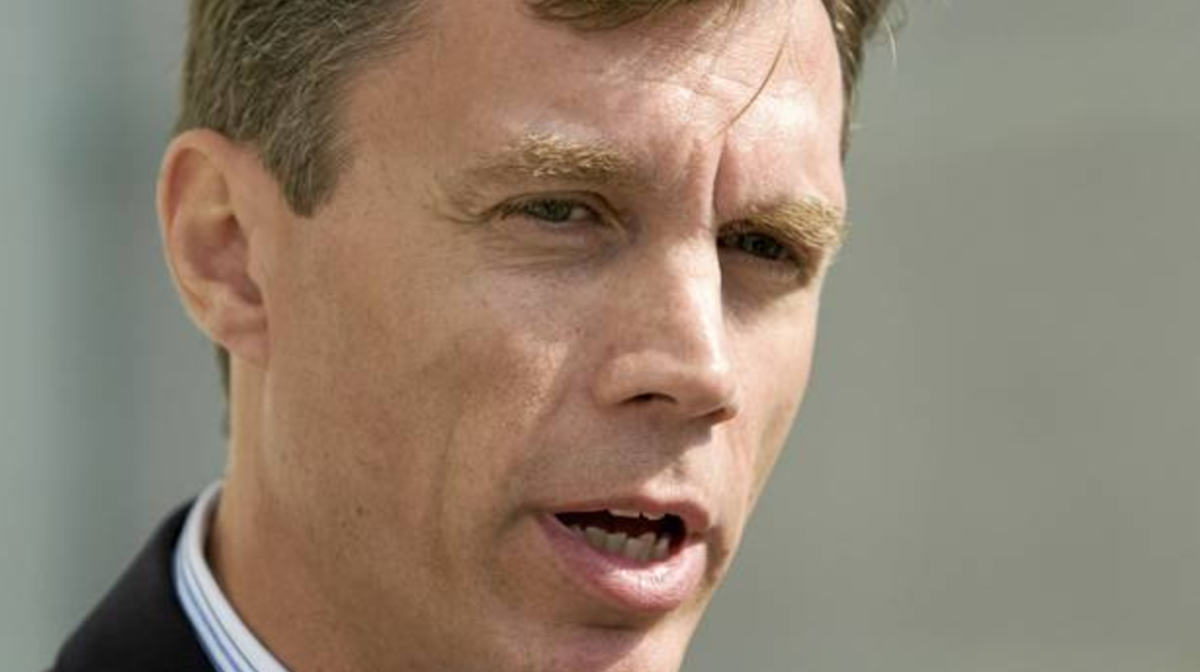
Previous conflict of interest complaints
It's not the first time the Clark government has been in hot water for its fundraising practices. In 2016, B.C.'s conflict of interest commissioner reviewed complaints that the BC Liberals' exclusive, expensive party fundraising events — along with a $50,000 annual stipend the party paid Clark — breached provincial law.
A month later, the commissioner determined Clark was not in a conflict of interest for accepting the stipend or hosting the 'cash-for-access' events. Democracy Watch was one of the organizations that filed the complaints against Clark.
In January 2017, the B.C. Supreme Court ruled that the commissioner's decision could not be challenged in court, and Clark announced she would give up her stipend from the party, as it had become a "distraction." Democracy Watch condemned the court decision at that time, and argued that the commissioner should have stepped aside from ruling on Clark's case, given that his son works as a deputy minister for the BC Liberal government.
Given this history, Conacher questioned how 'independent' and 'non-partisan' the panel could be if it is appointed by the the BC Liberal government.
“It’s a classic move to bait voters with the promise of future change, and then when you win power again, ignore your promise," said Conacher. "This panel is not being set up today, so it’s not a promise to set up a panel to look at an issue, not a promise to make change.”
— with files from Carl Meyer

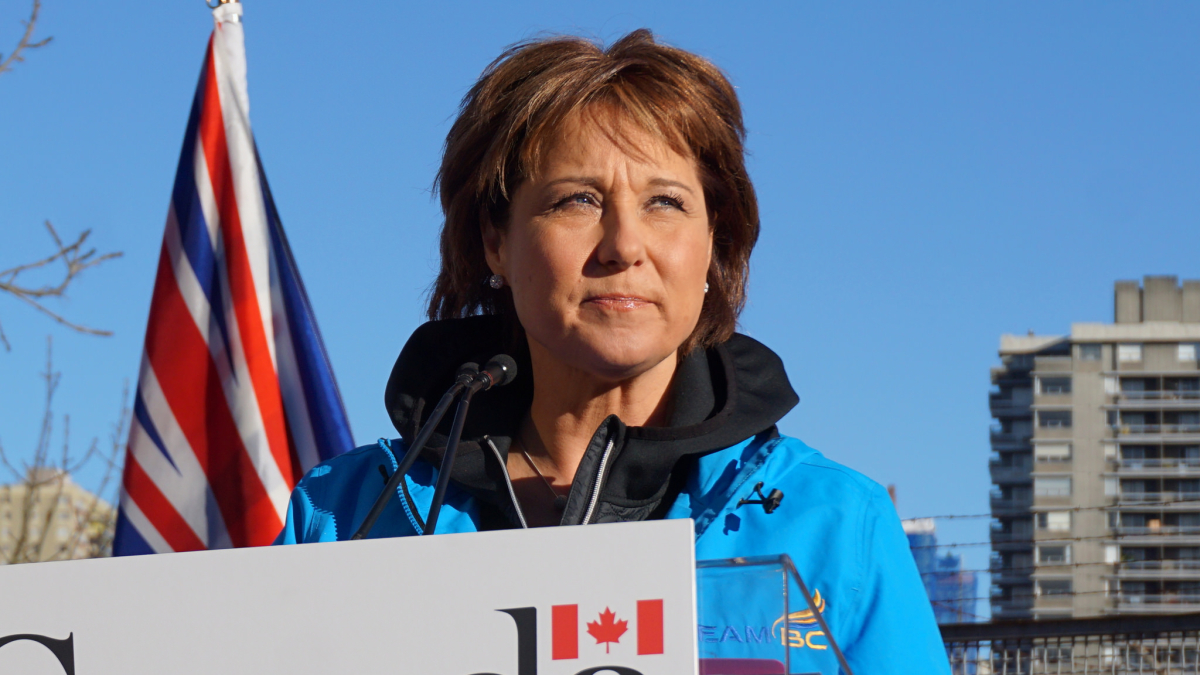

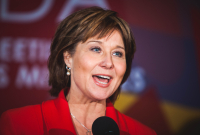
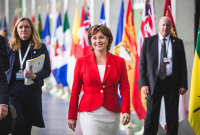
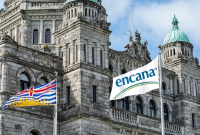
Comments
You gotta love it when the addict says, "I'll quit tomorrow but tonight I'm going to celebrate at the bar."